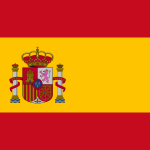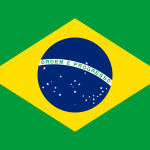[ad_1]
My husband was born and raised here and is from the Burusho indigenous community. After our marriage, I left America and we settled in the central part of the valley.
Here are some interesting habits that help the people of Hunza live longer:
Apricot trees are one of the most important local crops in the valley. Studies have shown that apricot seeds may help fight cancer and other sources of inflammation in the body, partly due to a compound called amygdalin.
Most people in Hunza have at least one apricot tree, and the seeds are harvested from inside the apricots every summer.
Photo: Samantha Shea
Almost every traditional Hunzai dish includes apricot oil. In olden times, it was made by hand, but now locals use machines to extract it from their harvested kernels.
My mother-in-law told me that 50 years ago, everyone cooked food, even meat. Dried versions of the fruit also help with altitude sickness, and are boiled in soups in winter.
My father-in-law is organizing dried apricots on his terrace
Photo: Samantha Shea
People here remain healthy and active throughout their life, even till old age. It is very common to see people over the age of 80 outside even in winter. Elderly members of the family still graze their cows and sheep, collect wood and do other household chores.
They also participate in community activities like “Razaki”. Which includes cleaning of high water canals when spring arrives.
Locals of all ages cycle, skate and play sports such as football and cricket every day.
Hunza is dotted with dozens of glaciers, all of which melt in the summer.
A shiny, dark brown fluid, “Hunza water” has long been a subject of interest to scientists. Unlike other water sources, this glacial water is naturally filtered by layers of ice and rock and contains valuable minerals.
A view of Pasu Glacier from Patundas, a grassland in Upper Hunza, where local people bring their livestock every summer
Photo: Samantha Shea
What Hunza Glacier water looks like straight from the source
Photo: Samantha Shea
The dish typically lasts from May to October every year, when you'll find it served in restaurants and homes. Locals swear by it, and prefer it to filtered water.
Almost every piece of meat eaten in Hunza comes from a locally sourced animal that has been recently killed.
People rarely eat processed foods, and you definitely won't find any fast food places here. Food is generally prepared fresh in-house daily, and almost every home grows some type of vegetable.
Spinach is particularly popular, and other favorites like tomatoes and potatoes are grown locally and organically.
Neighborhoods and villages are close-knit and the people of Hunza take care of each other, especially the elderly members of the community.
Retirement homes do not exist here. The elderly are greatly respected and cared for by their families.
Me and two strong older women from Chapursan Valley, one of the most remote parts of Hunza located along the Wakhan Corridor
Photo: Samantha Shea
With essentially zero crime, it is quite safe for children to travel alone even at a young age. This is probably one of the last places you'll see more outdoor sports than the iPad Play.
Having lived here for the last two years, I can happily say that I have never had the privilege of experiencing a collective society like this.
Samantha Shea is a Polish-American travel writer from Connecticut. She lives and works and runs in remote Pakistan's Hunza Valley women's tour For the area. follow him Instagram And youtube,
Do you want to land your dream job in 2024? Take CNBC's new online course How to Succeed Your Job Interview Learn what hiring managers are really looking for, body language techniques, what to say and what not to say, and the best way to talk about salary.
[ad_2]
Source link






